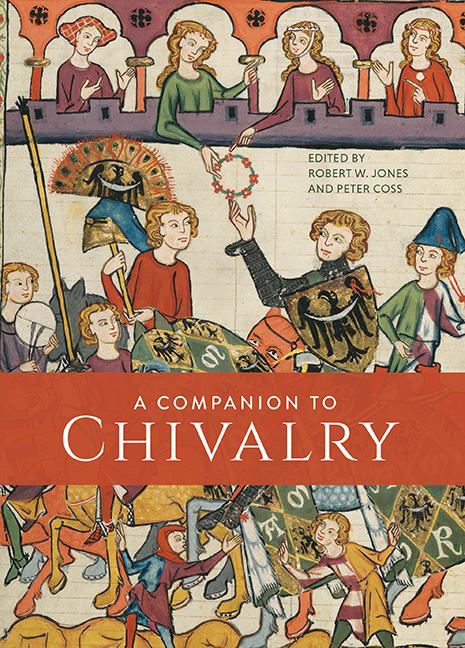Book contents
- Frontmatter
- Contents
- List of Illustrations
- List of Contributors
- Introduction
- 1 The Origins and Diffusion of Chivalry
- 2 The Organisation of Chivalric Society
- 3 The Secular Orders: Chivalry in the Service of the State
- 4 The Military Orders
- 5 Marshalling the Chivalric Elite for War
- 6 Chivalric Violence
- 7 Chivalry in the Tournament and Pas d'Armes
- 8 Heraldry and Heralds
- 9 Arms and Armour
- 10 Constructing Chivalric Landscapes: Aristocratic Spaces Between Image and Reality
- 11 Gendered Chivalry
- 12 Chivalric Literature
- 13 Manuals of Warfare and Chivalry
- 14 The End of Chivalry? Survivals and Revivals of the Tudor Age
- 15 Chivalric Medievalism
- Select Bibliography
- Acknowledgements
- Index
6 - Chivalric Violence
Published online by Cambridge University Press: 24 October 2019
- Frontmatter
- Contents
- List of Illustrations
- List of Contributors
- Introduction
- 1 The Origins and Diffusion of Chivalry
- 2 The Organisation of Chivalric Society
- 3 The Secular Orders: Chivalry in the Service of the State
- 4 The Military Orders
- 5 Marshalling the Chivalric Elite for War
- 6 Chivalric Violence
- 7 Chivalry in the Tournament and Pas d'Armes
- 8 Heraldry and Heralds
- 9 Arms and Armour
- 10 Constructing Chivalric Landscapes: Aristocratic Spaces Between Image and Reality
- 11 Gendered Chivalry
- 12 Chivalric Literature
- 13 Manuals of Warfare and Chivalry
- 14 The End of Chivalry? Survivals and Revivals of the Tudor Age
- 15 Chivalric Medievalism
- Select Bibliography
- Acknowledgements
- Index
Summary
Gentlemen in shining armor mounted on white horses fighting bravely to rescue damsels in distress, protect the poor and downtrodden, serve their righteous kings, and protect the Christian faithful from the enemies of God: this is a vision of chivalry. But it is not an accurate account of medieval chivalry; rather it represents a romantic view of what chivalry ought to be. Medieval knights and men–at–arms were first and foremost practitioners of violence, whose mentality and worldview were underpinned by chivalric ideals, especially the primacy of honor. Yet chivalry was also a complex ideology filled with tensions and contradictions. The chivalric elite worried about the possible excesses of violence even as they embraced its practice as central to their lifestyle and justified violence with claims of honor. Medieval chivalry simultaneously encouraged knights to demonstrate restraint on the battlefield even as it urged them on to acts of incredible bloodshed. Tensions such as these are part of what made chivalry such a powerful and versatile worldview.
Debates continue among historians about the extent to which chivalry encouraged or restrained violence in the French and English contexts. Studies of chivalry and violence have flourished in the last several decades, with scholars such as Richard Kaeuper and Maurice Keen leading the way. And while the original points of contention remain, new research is carrying the study of chivalry and violence south of both the Alps and the Pyrenees into new geographical locations. At the same time, the study of chivalry and violence has become more interdisciplinary with the integration of the history of emotions and anthropological studies of honor and shame. This chapter will examine some of the key issues in the study of chivalry and violence, emphasizing the close connection between the two in both theory and practice before moving further afield to assess how the violent core ideals of chivalry acclimatized to different social, political, and religious contexts in the commune of Florence and the Kingdom of Castile.
The Core Tenets of Chivalry
The brightest stars in the constellation of chivalry were prowess and honor.
- Type
- Chapter
- Information
- A Companion to Chivalry , pp. 99 - 118Publisher: Boydell & BrewerPrint publication year: 2019



